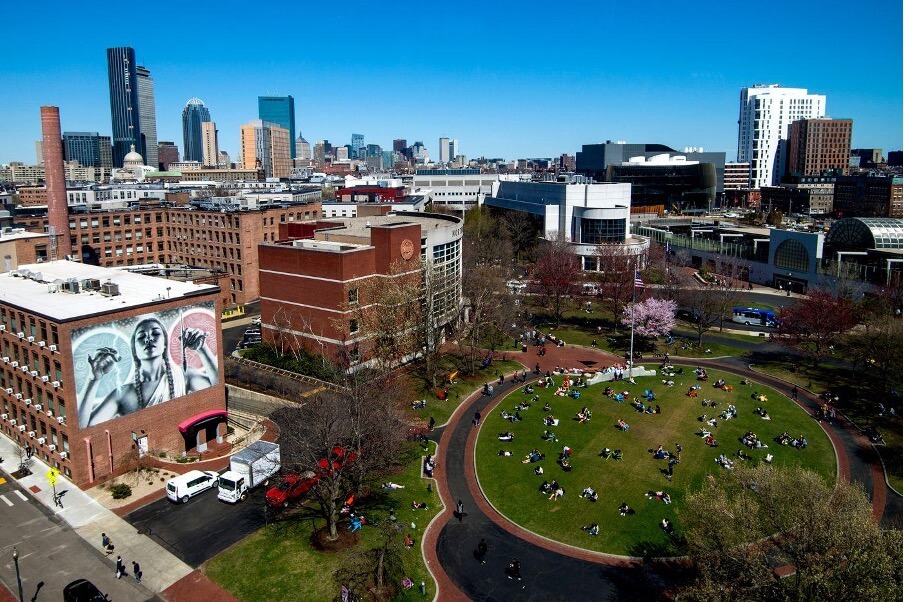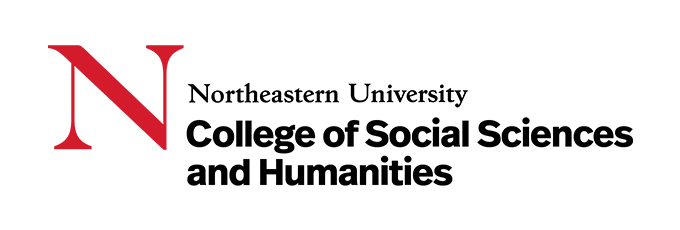The numbers say it all. According to the United Nations, over half the world’s population now lives in cities. In just a few decades more, that share will increase to two-thirds. As urban areas consume our planet’s resources, we must deal with the demands of an ever-growing population. The management of cities will be key to the future of our society.
This is the challenge, one of many, that Northeastern University’s College of Social Science and Humanities (CSSH) is helping to solve with its data-driven graduate programs. In addition to its main campus in Boston, which is itself a bastion of high tech innovation with social impact, Northeastern is increasing its footprint in Seattle.
There’s no better place for this type of work. The Seattle campus is located in South Lake Union — an epicenter for innovation and discovery, home to companies and institutions that share the university’s vision. This prime location offers an array of experiential opportunities, which complement Northeastern’s future-focused, industry-aligned programs.

For over 100 years, this dynamic university has been a world leader in cooperative education (co-op). Source: Northeastern University
Among the degrees offered in both Boston and Seattle is the Master of Science in Urban Informatics, which prepares students to leverage technology and data to better understand and serve cities. By combining training in data analytics with a specialized sequence of courses, students learn how to solve key social, infrastructural, and environmental challenges.
This covers everything from transportation to housing, from community dynamics to how a government deals with potholes. “All of these things are open questions and are very interesting from both a scholarly perspective and the practical question of how does the city itself actually work,” explains associate professor Dan O’Brien. “This program is particularly needed because it’s one of only a few in the country that is dedicated to urban informatics.”
Another distinctive program is the Master of Science in Security and Resilience Studies. It prepares graduates to support domestic and international efforts to decrease turbulence in the 21st century. To do this, the course explores how strategic doctrines, organization processes, bureaucratic behaviors, as well as security tools and tactics are adapting to become more resilient.
“The program has faculty who have been on the frontlines of security studies and resiliency,” enthuses graduate Rose Leopold. “They bring students into the real world from the second they get on campus. As a final project, we had to assess the resiliency and security of Massport, presenting our recommendations to two senior officials, the TSA, and the Department of Homeland Security.”
Another complementary program is the Master of Science in Economics, which is a STEM-designated program designed to provide a solid foundation in economic theory, quantitative methods, and policy. It prepares students for multi-industry career opportunities in professions such as applied statistics, data science, or financial analysis. It is ideal for those looking for an entry point to a multi-faceted policy career. As Zachary Nielsen (MS Economics ’18) sums up, “An applied degree takes the skills that I learn and allows me to see how they would be used in the real world.”
MS Economics students have the option to add a concentration in data science in partnership with Northeastern’s Khoury College of Computer Science. This concentration enables students to build a foundation in economics while honing their computational modelling and programming skills. Those students who are enrolled in Seattle are required to complete the concentration.
CSSH’s newest program is a Master of Science in Applied Quantitative Methods and Social Analysis. “The program offers advanced methodological and statistical training that prepares the next generation of data analysts and social scientists to confront society’s toughest challenges,” explains Professor Gregory Zimmerman, director of the program.
This interdisciplinary degree enables ambitious social scientists to utilize computational tools for social analysis. It merges quantitative research methods and analysis techniques with a specialized sequence of courses that tackles the social issues of equity, hierarchy, social organization and systems. Students can choose from five concentrations: Data Analytics in the Social Sciences; Computational Social Science; Network Analysis in the Social Sciences; Statistical Methods in the Social Sciences; and Information Ethics.

Joining Northeastern means joining a network of 3,300 businesses and nonprofits in 136 countries of six continents. Source: Northeastern University
The Northeastern advantage is evident in all programs. For over 100 years, this dynamic university has been a world leader in cooperative education, known as “co-op.” The signature program enables students to add full-time work experiences to their academic degrees.
Access to a network of more than 3,300 employers in 136 countries opens many doors to students around the world. So do regional campuses. The programs mentioned above can also be facilitated in Northeastern’s main campus in Boston.
The result? Students explore potential career paths, forge valuable industry connections, broaden their perspectives, and gain the hands-on knowledge that they will need for success. It’s a formula that works— apply to CSSH today.
Follow the College of Social Sciences and Humanities on Facebook, Twitter, Instagram, YouTube, and LinkedIn













